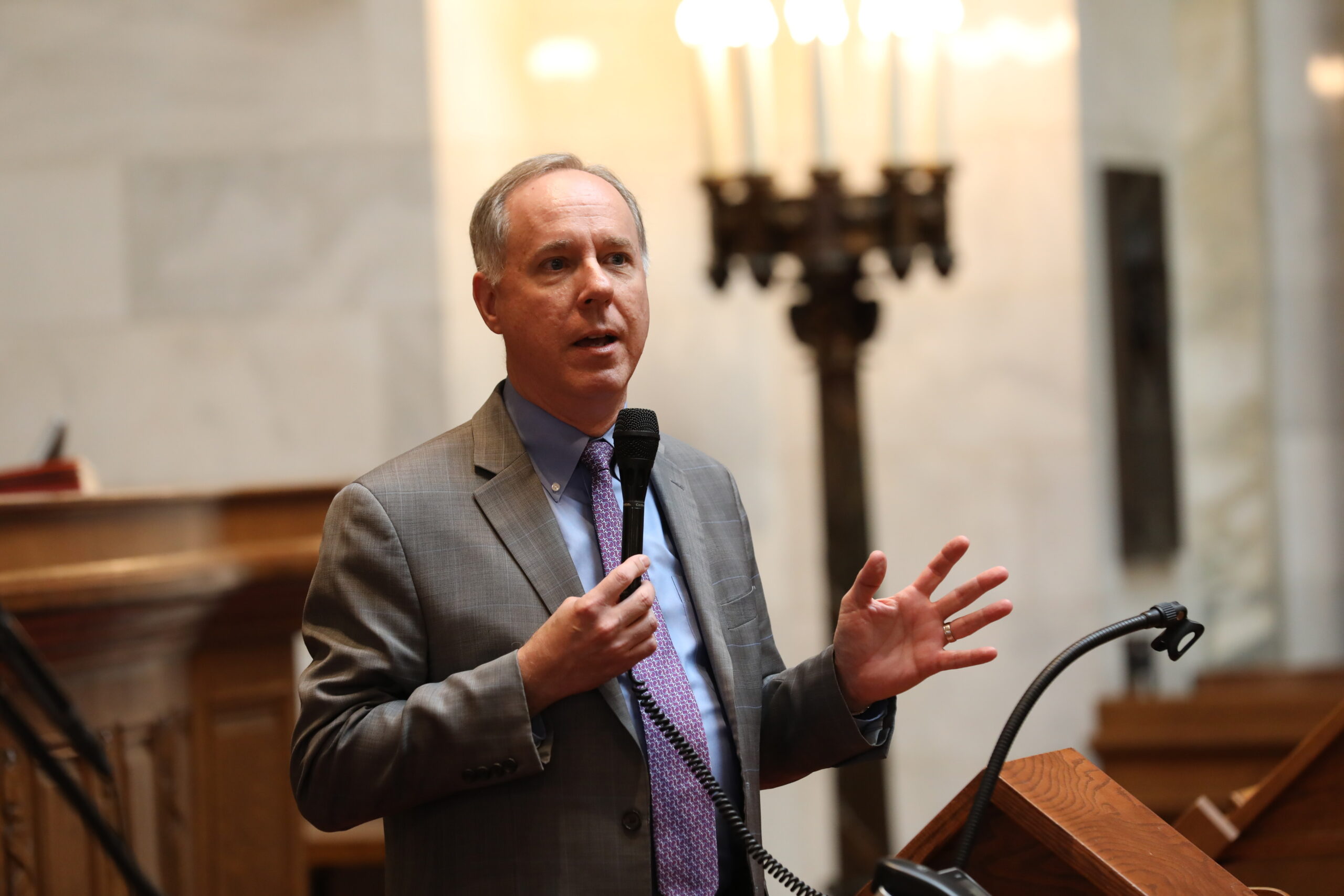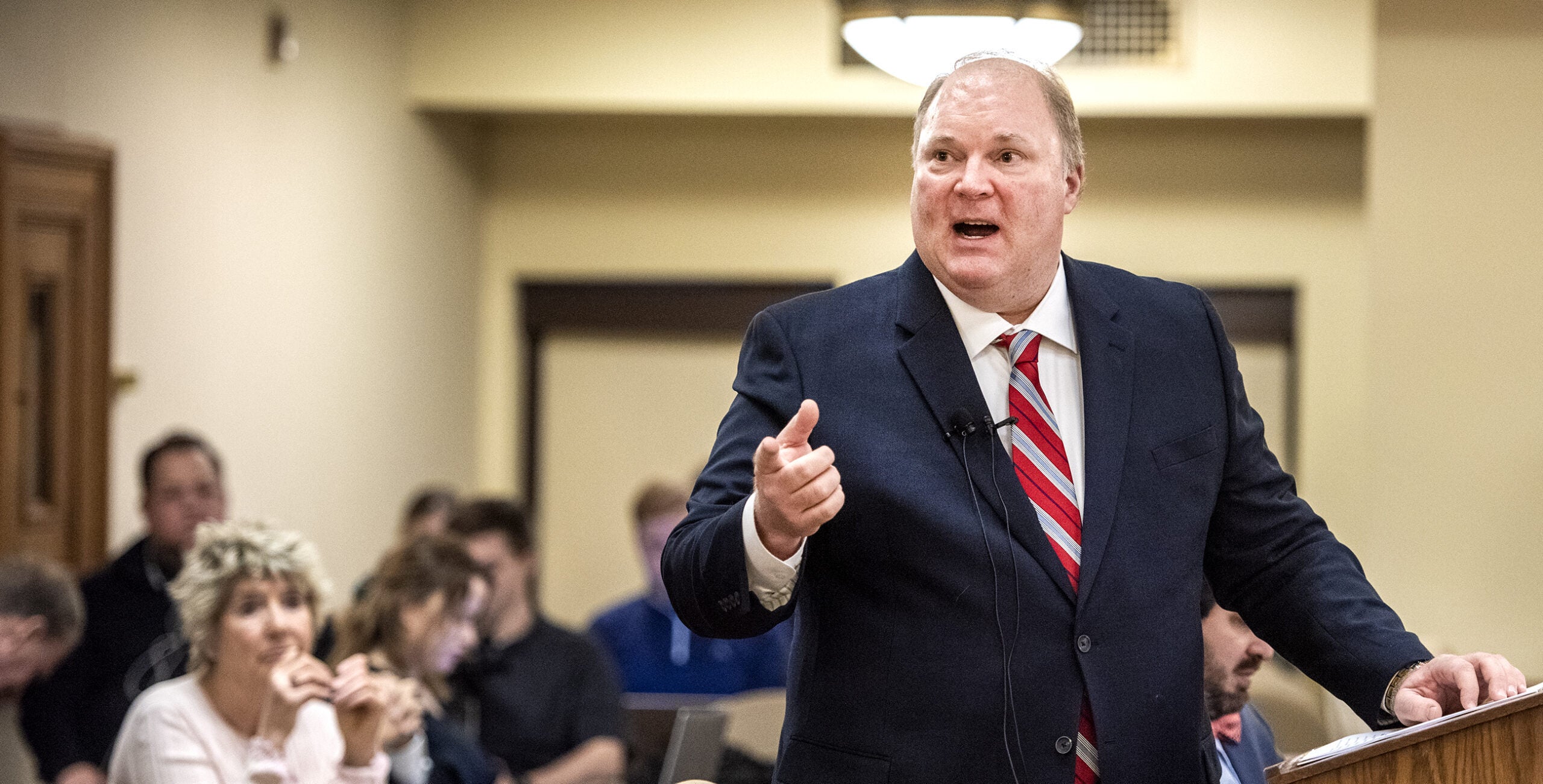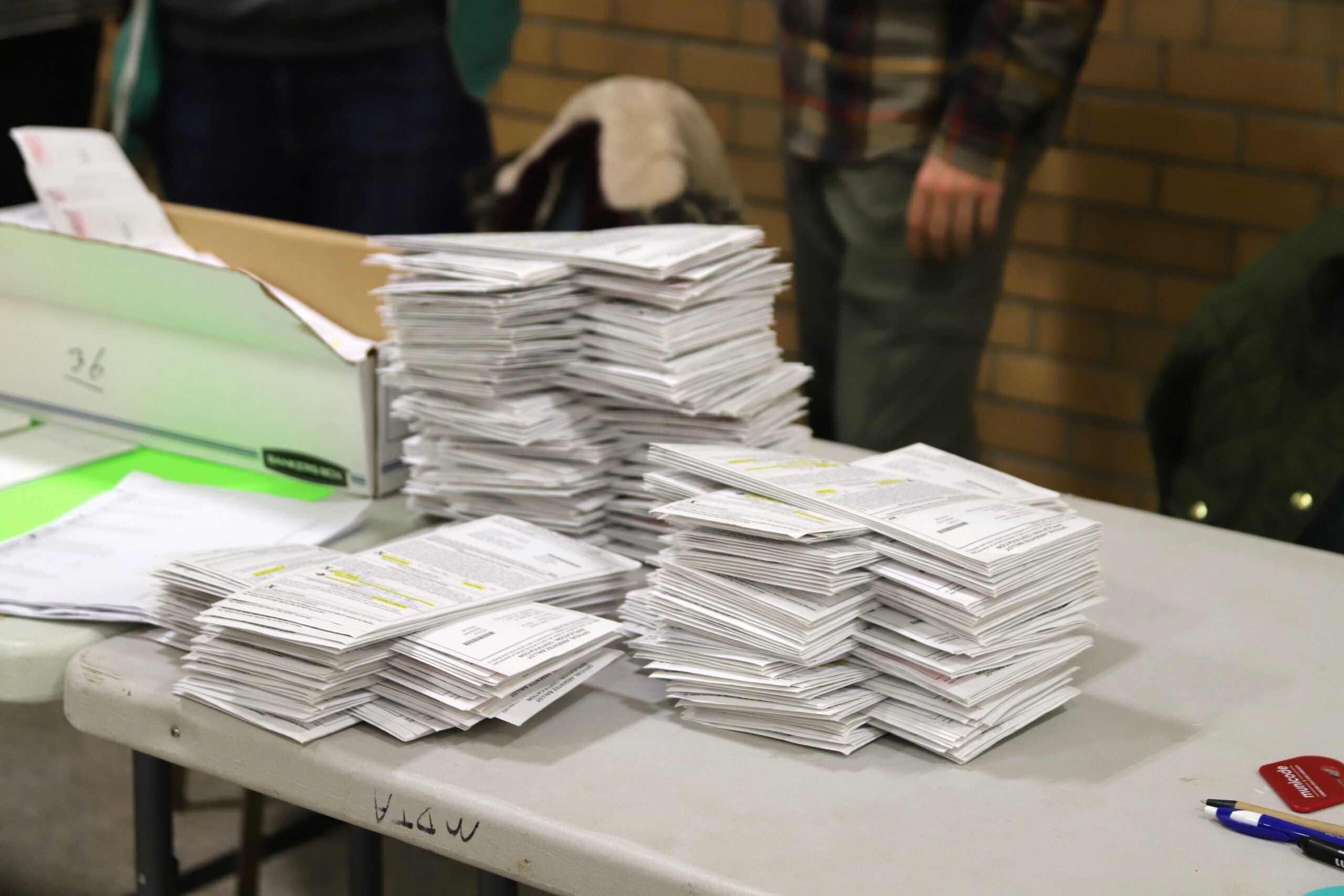A second judge has issued an order directing Wisconsin Republicans not to delete records connected to special counsel Michael Gableman’s investigation of the 2020 election.
Dane County Judge Valerie Bailey-Rihn handed down the order Wednesday against the protests of Assembly Speaker Robin Vos’ attorney, who argued Vos can’t control how Gableman interprets Wisconsin’s open records laws.
“I don’t want any records destroyed,” Bailey-Rihn said. “I’m frankly amazed that I have to say, ‘Don’t destroy records that are subject to an open records request.’”
Stay informed on the latest news
Sign up for WPR’s email newsletter.
Bailey-Rihn’s order comes roughly two weeks after Dane County Judge Frank Remington ordered Gableman’s office to stop deleting records in a separate open records lawsuit. Both cases were brought by the liberal watchdog group American Oversight.
Deleted records became an issue after lawyers for the Assembly Office of Special Counsel said Gableman was deleting records he deemed irrelevant to the investigation.
Gableman and the Assembly Office of Special Counsel are defendants in the case before Remington but not in the case before Bailey-Rihn.
The defendants in the case heard Wednesday include Vos, who hired Gableman, the Wisconsin state Assembly and Assembly Chief Clerk Ted Blazel.
Vos attorney Ronald Stadler told Bailey-Rihn that meant she could not enforce any orders that would bind Gableman.
“I don’t represent the Office of Special Counsel,” Stadler said. “And I’m not privy to what its actual position is going to be.”
Stadler told Bailey-Rihn he could relay a message to Gableman’s office not to delete records, but he suggested that he had no way to enforce it.
“They can choose whether they want to listen to that,” Stadler said. “But they won’t be in contempt because there’s no order as to them.”
Bailey-Rihn responded that even if Gableman could not be held in contempt in this case, Vos could.
“Even if your contractors can’t be held in contempt by the court, the people responsible for them can,” Bailey-Rihn said.
“I just can’t believe the explanation is, ‘We can’t control our subcontractors,’” Bailey-Rihn continued. “That just doesn’t seem to be satisfactory to the court since the contractors work for the Assembly. They work for the taxpayers.”
Bailey-Rihn already held Vos in contempt in an earlier ruling in this case, saying his office had shown “a collective and abject disregard” for an earlier order to produce open records.
Vos hired Gableman last year to investigate the 2020 presidential election, signing a contract that originally expired Oct. 31, 2021. The contract set aside up to $676,000 to fund Gableman’s office, though that total did not include taxpayer funds used to represent Gableman in court.
Gableman continued to work under an amended contract Remington later ruled was not legally enforceable.
In March, shortly after Gableman released his most recent report on the 2020 election, Vos renewed his contract, signing an amended agreement that expired April 30.
Under pressure from former President Donald Trump — and Gableman himself — Vos issued a statement last week saying the Office of Special Counsel would remain open while it pursues legislative subpoenas and fights lawsuits.
Blazel, the chamber’s record-keeper, said in an email Wednesday that he did not have a new or updated contract for Gableman.
Wisconsin Public Radio, © Copyright 2025, Board of Regents of the University of Wisconsin System and Wisconsin Educational Communications Board.




